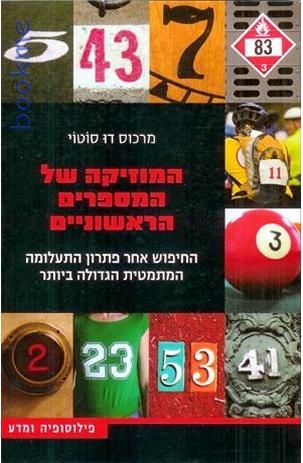The conference "Science in the Israeli media: from indifference to communication" will be attended by members of the media and scientists and its purpose is to build a community of science mediators in Hebrew; creating an opportunity for dialogue between the scientific community and the people mediating its work; Increasing awareness of the mass media as a tool for transmitting scientific messages.

Tomorrow, Monday, a symposium on "Science in the Israeli media: from indifference to communication" will be held in the Department of Science Teaching at the Technion.
In one of the lectures, Dodi Goldman, the science reporter at Yediot Ahronoth, will argue that it is easier to be a science reporter at Haaretz or the Hidan website than at Yediot or Channel 2, where science coverage is based on anecdotal matter. The translator and editor Dr. Emanuel Lotem will talk about translating popular science and science fiction into Hebrew, and format developer Oded Nofhi (formerly director of Galgalz and editor of the Children's Channel) will describe what ways of introducing science education content into programs aimed at the general public have been tried in the world, and what is the situation in Israel in this regard . Shmulik Shem Tov, editor of "Odysseus - A Journey Between Ideas" (former CEO of the Second Authority for Television and Radio and production manager at the JCS television company) will talk about the changes in the status of the scientist and the scientist himself in Israeli society. The organizer of the conference is Dr. Eilat Baram-Zabari, Department of Technology and Science Teaching, Technion
About the conference
The penetration of science and technology into many and increasing aspects of our lives makes scientific knowledge, and especially the understanding of the scientific method, essential for making decisions at the personal and national level. The mass media is the main source of information about science for the general public. However, the scope of reporting on science issues in Israel, and sometimes the level of reporting as well, are lacking. Furthermore, the relationship between the scientific community and the media community often oscillates between indifference and mutual suspicion.
This symposium has three goals, designed to improve the quantity and quality of scientific reporting in the Israeli media:
1. Building a community of science mediators in Hebrew. Dozens of people are engaged in mediating science in Israel. This symposium is an opportunity to get to know each other, network and create collaborations and a common agenda.
2. Creating an opportunity for dialogue between the scientific community and the people who mediate its work. Many of the claims directed by scientists towards the reporting of science in the media, arise from the constraints of the media, and not from the laziness or ignorance of the journalists, as is easy to think. This symposium is an opportunity for scientists for whom communication with the general public is important, to get to know the professionals who mediate their work and to learn about the rules of the game that guide them.
3. Increasing awareness of the mass media as a tool for transmitting scientific messages. Many scientists and educators do not see the mass media as an important tool for conveying messages about science to the public, either out of lack of awareness or out of bad experience in the past. This symposium is an opportunity to learn about mass media and its advantages and limitations as a tool for teaching science to the general public.
The general public is invited.

4 תגובות
To the point and pine
The majority of the public is indeed ignorant or, as you called it, apparently "stupid".
I will explain:
Most people are "experts in their field" (which is usually their professional occupation for the purpose of their livelihood) and "ignorant in general" that is, ignorant in areas that are not their areas of expertise. Only rarely are they intellectuals, interested in broad areas beyond their professional expertise.
The situation is sometimes even worse than that, many experts in their field even tend to underestimate and discard the knowledge in areas that are not their areas of expertise and believe that their expertise is enough to qualify them as experts and know nothing in areas where they have no expert knowledge.
This is how we find writers who prove to us at the gates of security and foreign policy while all they can do is outline for us, at most, their worldview. Rich merchants, who made their fortune in one way or another, who claim to teach the government how to conduct economic policy, while in fact they are advising the government on how to allow them to increase and increase their wealth. and military personnel in the same way. Those who pretend to be experts in everything, while their main strength is to carry out the instructions of their superiors, without being caught in failure.
So when the science journalist in the daily newspaper comes to publish an article about science, he can only assume that the majority of his readers are indeed ignorant (or stupid as you wrote).
post Scriptum.
The anonymous user was me, I forgot to write the "name" details. A marginal fact, but I felt the need to add
The media channels prefer the stupid public because they appeal to the general public 🙂
The media channels prefer a dumb public because it is easy to manipulate.